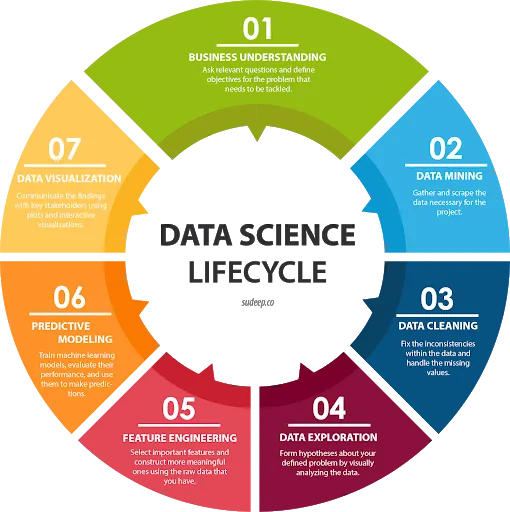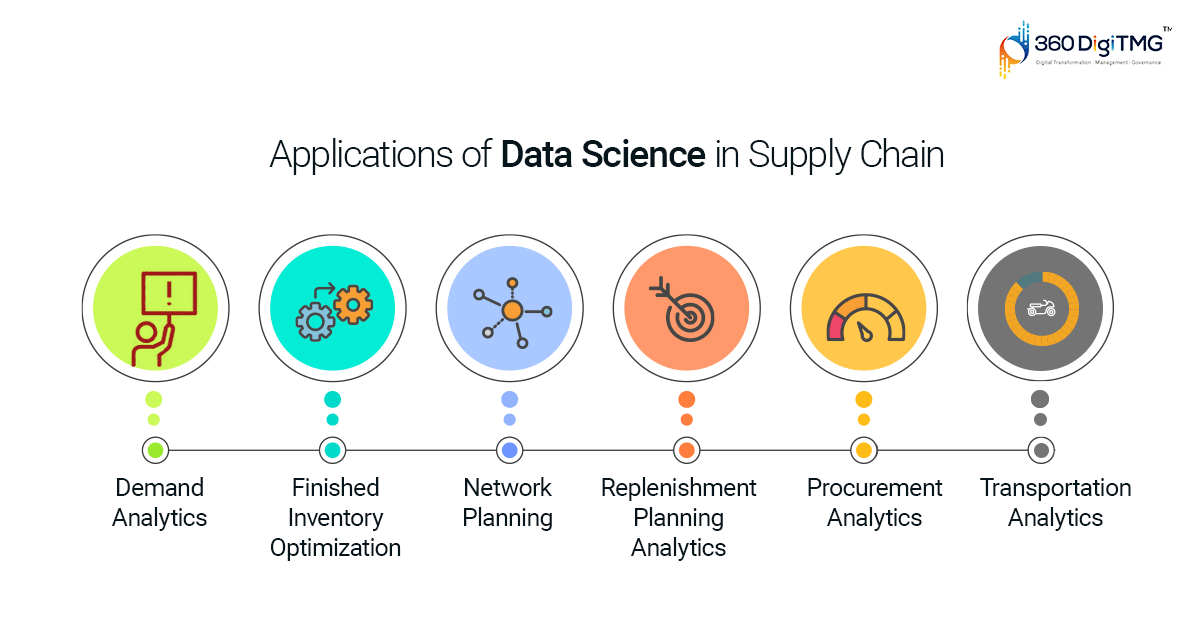Introduction:
In today’s data-driven world, the role of data science has become increasingly prominent. From predicting customer behavior to optimizing supply chains, data science is at the heart of many industries and applications. In this comprehensive introduction, we will explore the essence of data science, its key components, and why it matters.
Understanding Data Science:
Data science is not just about analyzing data; it’s a holistic approach to extracting knowledge from data to solve real-world problems. Here’s a breakdown of its core elements:
Data Collection: The process starts with collecting data, which can come from various sources, such as sensors, social media, or databases. This step is crucial because the quality and quantity of data impact the subsequent analysis.
Data Cleaning: Raw data is often messy and may contain errors. Data scientists need to clean and preprocess the data to ensure it’s suitable for analysis. This involves handling missing values, outliers, and standardizing formats.
Exploratory Data Analysis (EDA): Before diving into complex models, data scientists explore the data visually and statistically. EDA helps identify patterns, trends, and relationships within the data, providing valuable insights.
Feature Engineering: Feature engineering involves selecting, transforming, or creating new features from the existing data. It plays a pivotal role in building predictive models.
Machine Learning: Machine learning algorithms are the workhorses of data science. They enable predictive modeling, classification, clustering, and anomaly detection. Data scientists choose the most suitable algorithms for their specific tasks.
Model Evaluation: Building a model is one thing; assessing its performance is another. Data scientists use various metrics to evaluate how well a model generalizes to new, unseen data.
Data Visualization: Communicating results effectively is crucial. Data visualization techniques, like charts and graphs, help present findings in an understandable and actionable way.
Applications of Data Science:
Data science has a wide range of applications across industries:
Healthcare: Predictive analytics can help diagnose diseases early, and data-driven approaches can optimize healthcare operations.
Finance: Fraud detection, risk assessment, and algorithmic trading are all areas where data science plays a crucial role.
E-commerce: Recommender systems use data science to suggest products to users, increasing sales and customer satisfaction.
Marketing: Data science enables marketers to understand customer behavior, personalize campaigns, and measure their impact accurately.
Manufacturing: Predictive maintenance reduces downtime by forecasting when equipment might fail, saving both time and money.
Transportation: Route optimization and demand forecasting improve logistics and public transportation systems.
Why Data Science Matters:
Data science is more than just a buzzword; it’s a transformative force in our data-rich society. Here are some reasons why data science matters:
Informed Decision-Making: Data-driven insights help organizations make informed decisions, leading to improved efficiency and competitiveness.
Innovation: Data science fuels innovation by uncovering new opportunities, optimizing processes, and creating novel solutions.
Personalization: Whether it’s personalized recommendations on Netflix or targeted marketing emails, data science enhances user experiences.
Scientific Discovery: Data science accelerates scientific research by analyzing vast datasets in fields like genomics, climate science, and astronomy.
Social Impact: Data science can address societal challenges, from predicting disease outbreaks to combating climate change.
Challenges and Ethical Considerations:
While data science offers immense potential, it also comes with challenges. Ensuring data privacy, dealing with biased algorithms, and interpreting complex models are just a few of the hurdles data scientists must overcome. Moreover, ethical considerations are paramount, as misuse of data can have serious consequences.
Conclusion:
Data science is a powerful discipline that leverages data to make informed decisions, drive innovation, and improve countless aspects of our lives. It encompasses a wide range of skills and tools, making it an exciting and dynamic field. As data continues to grow in volume and complexity, the role of data science in shaping the future will only become more significant. Whether you’re a seasoned data scientist or someone just starting to explore the field, understanding the basics of data science is a valuable investment in today’s data-driven world.




